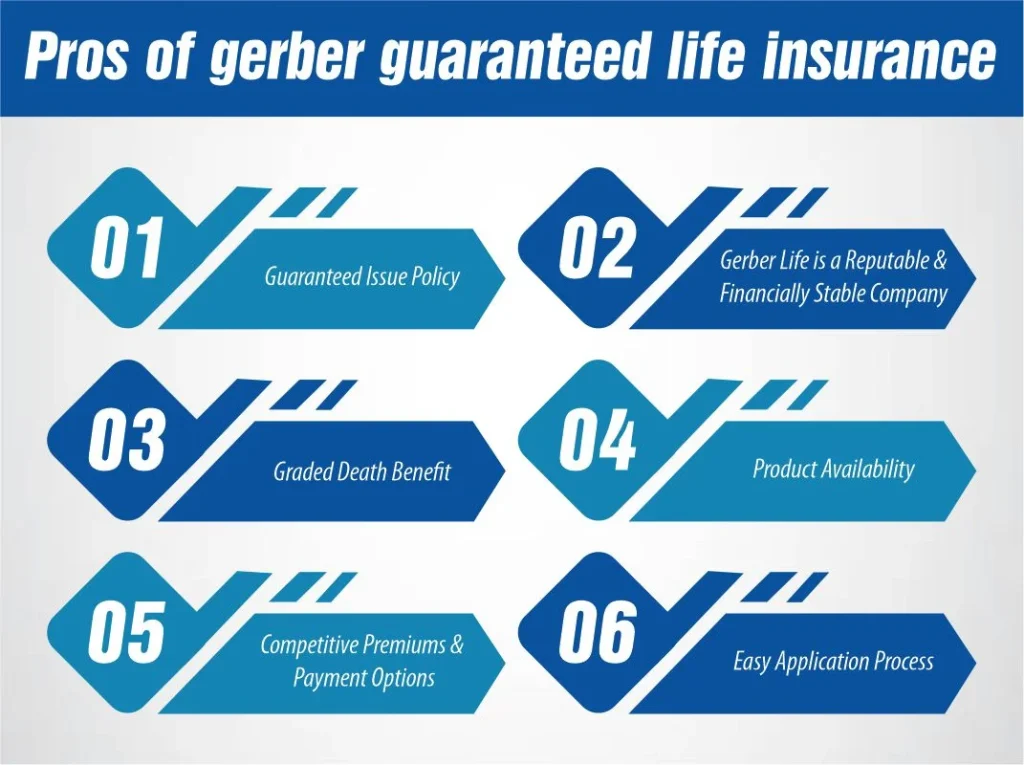Last Updated on: March 15th, 2025
Reviewed by Kyle Wilson

If you are wondering about guaranteed vs non guaranteed life insurance, well, you have come to the right place!
You’re reading this because you’ve been thinking about getting life insurance. You know it’s a good idea, but the options seem overwhelming.
What should I get? How much do I need? Is there anything else I should be considering before making my decision?
The truth is that buying life insurance is one of those decisions where everyone has an opinion – and most people don’t have your best interests in mind.
This article will help you find the answers to all these questions and more!
Customized Options Await
Guaranteed Life Insurance is a policy designed for those who value certainty and long-term peace of mind. But what makes it “guaranteed”? With this type of insurance, your premiums and death benefit are locked in for the life of the policy—no surprises, no changes, ever. Have you ever worried about market fluctuations affecting your coverage? With guaranteed life insurance, you don’t have to. Whether you live for 10 more years or 50, your loved ones will receive a fixed payout. The stability and predictability make it a popular choice for people who want a stress-free, dependable financial safety net.
Non Guaranteed Life Insurance is a type of policy where the benefits aren’t fully guaranteed. This means that certain aspects of the policy, such as the cash value or death benefit, can fluctuate based on various factors.
These factors can include the performance of the insurance company’s investments, interest rates, or changes in mortality rates. As a result, the policyholder may end up with more or less than the initially projected benefits.
One popular type of Non Guaranteed Life Insurance is Indexed Universal Life (IUL) insurance. IUL policies offer flexible premiums and the potential for cash value accumulation. They also provide a death benefit to protect your loved ones financially.
However, it’s important to note that while IUL policies can offer significant benefits, they also come with risks. The cash value and death benefit aren’t “guaranteed” and can vary based on the performance of the stock index they’re tied to. Understanding these risks is crucial when considering an IUL or any other type of Non Guaranteed Life Insurance.
Guaranteed Life Insurance is all about stability and peace of mind. With fixed premiums that never change, you can easily budget for your coverage. The best part? Your beneficiaries receive a guaranteed death benefit, ensuring their financial security no matter what happens in the market. Many policies also come with a cash value component that grows at a steady rate, providing you with accessible funds if needed. It’s the perfect choice for those who value reliability and want to know exactly what their loved ones will receive.
Non-Guaranteed Life Insurance offers a dynamic approach to life coverage. With premiums that can fluctuate based on market performance, you have the potential for higher returns. The death benefit isn’t set in stone; it can grow if investments do well, providing a larger payout for your beneficiaries. However, it can also decrease during downturns. Plus, the cash value is linked to investments, giving you more control but also exposing you to market risks. If you’re open to flexibility and the chance for growth, this option could be your path to financial empowerment.

Pros:
Cons:
Pros:
Cons:
Whether you should buy guaranteed vs non guaranteed life insurance coverage depends on many factors. Here are some factors to consider:
Most people who bought universal life policies 10 to 20 years ago, when 5%-7% fixed interest rates were the norm, never envisioned the financial collapse in 2008 or the extended low interest rates that we are currently experiencing. Those policies are now only earning around 2%-3%, and the owners, often retirees, are faced with paying significantly higher premiums or losing the coverage.
Insurance is unique because it allows you to time liquidity to specific events and to transfer substantial risks that you cannot otherwise afford to pay out of pocket. If, like most people, you are buying life insurance for the leverage (small premium/large death benefit), you may prefer not having to worry about the policy staying in force.
Many insurers promote the ‘living benefits’ of permanent life insurance that include the tax-free growth of the cash value, the ability to invest in mutual fund sub-accounts or index products, and taking loans against the cash value or surrendering a portion of the cash value. If these benefits are important to you, then guaranteed coverage may not be the best choice.
For many people, a 20- or 30-year level term policy may be adequate to pay off a mortgage or provide funds for your children’s education. And some term insurance can be converted.
Feature | Guaranteed Life Insurance | Non-Guaranteed Life Insurance |
Definition | Offers guaranteed benefits such as fixed premiums and death benefit, regardless of market conditions. | Offers benefits that may vary based on market performance or other variables. |
Premiums | Fixed premiums throughout the policy term. | Premiums can fluctuate, depending on the policy’s performance. |
Death Benefit | Guaranteed death benefit payout to beneficiaries. | Death benefit may increase or decrease based on policy performance. |
Cash Value Growth | Guaranteed, stable growth in cash value. | Cash value growth is dependent on market conditions and policy performance. |
Risk Level | Low risk, as benefits and premiums are predetermined. | Higher risk due to market fluctuations and non-guaranteed returns. |
Policyholder Control | Less control over investment decisions, but more stability. | More control over investment choices, but greater uncertainty. |
Best For | Those seeking stability, predictability, and long-term security. | Individuals comfortable with risk and seeking potentially higher returns. |
Examples | Whole Life Insurance, Guaranteed Universal Life Insurance. | Variable Life Insurance, Indexed Universal Life Insurance. |
Choosing between Guaranteed vs Non Guaranteed Life Insurance comes down to your financial goals and risk tolerance.
Life insurance is one of the most important decisions you’ll make to protect your family’s future. So ask yourself: Do you want peace of mind, knowing exactly what your family will receive, no matter what? Or are you willing to take on some risk for the potential of a greater financial return?
By understanding the key differences between Guaranteed vs Non Guaranteed Life Insurance, you’ll be better equipped to make an informed decision that suits your needs, lifestyle, and financial goals. Whichever path you choose, make sure it aligns with your long-term vision for your family’s security.
Yes, you can have more than one Guaranteed Life Insurance policy. There are no specific restrictions on the number of life insurance policies an individual can hold. People often choose to have multiple policies to meet different financial goals and provide added financial security to their beneficiaries.
Bonuses in life insurance plans are not always guaranteed. Whether a bonus is guaranteed or non-guaranteed depends on the type of policy and the terms and conditions set by the insurance company. Traditional life insurance policies often offer guaranteed bonuses, while other policies may provide non-guaranteed bonuses based on the insurer.
Senior Writer & Licensed Life Insurance Agent
Iqra is a dynamic and insightful senior writer with a passion for life insurance and financial planning. With over 8 years of hands-on experience in the insurance industry, Iqra has earned a reputation for delivering clear, actionable advice that empowers individuals to make informed decisions about their financial future. At Burial Senior Insurance, she not only excels as a licensed insurance agent but also as a trusted guide who has successfully advised over +1500 clients, helping them navigate the often complex world of life insurance and annuities. Her articles have been featured in top-tier financial publications, making her a respected voice in the industry.

Burial Senior Insurance provides information and services related to burial insurance for senior citizens, including policy options and end-of-life support services.
Copyright © Burial Senior Insurance 2025. All Right Reserved.

Get Free Life Insurance Quotes